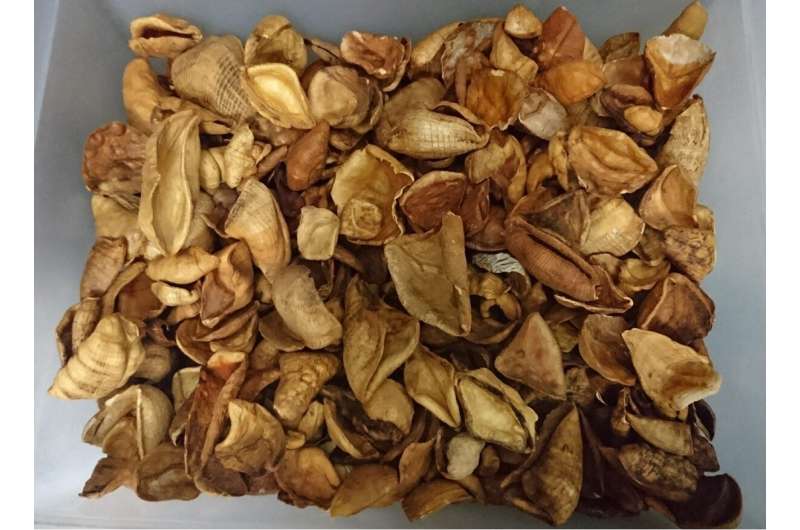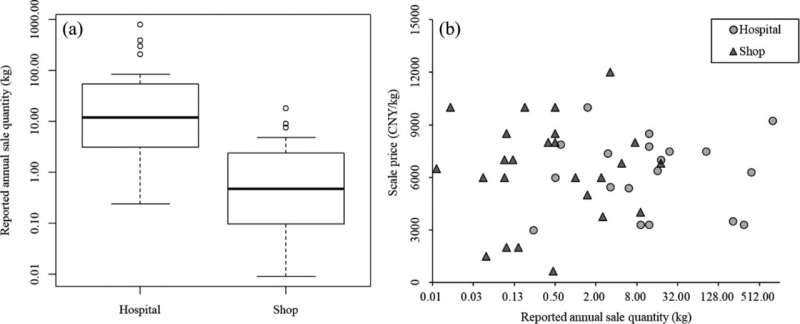Illegal trade and poor regulation threaten pangolins in China

Pangolins, unique scale-covered mammals, are drastically declining in numbers across Asia and Africa, largely due to illegal trade. Part of the trade, both legal and illegal, supports the traditional Chinese medicine market, which has attracted conservation attention. The level of demand for pangolins and other animals in traditional Chinese medicine, however, hasn’t been thoroughly studied.
In a new study published in the journal Nature Conservation, Dr. Yifu Wang, currently a postdoc researcher at the University of Hong Kong, investigated pangolin scale trade in China, interviewing staff in hospitals and pharmaceutical shops in two provinces (Henan and Hainan). Between October 2016 and April 2017, she and her team talked to doctors from 41 hospitals and shop owners and assistants from 134 pharmaceutical shops.
The research found pangolin scales and their derivatives were widely available in hospitals and pharmaceutical shops across Henan and Hainan Provinces. The legislation in place, however, has not been able to prevent ongoing illegal trade in pangolin products. Her team found that 46% of surveyed hospitals and 34% of surveyed pharmaceutical shops were selling pangolin scale products illegally.
“Existing legal trade allows 711 hospitals to sell pangolin products as medicine with regulations on manufacturer, package, and national annual sale quantity,” explains Dr. Yifu Wang. “However, we show that pangolin scales are under heavy demand and unpermitted sellers are commonly found illegally selling pangolin products.”
“Quantities of products traded by permitted legal sellers are estimated to greatly exceed the supply capacity of legal sources,” she continues.

This widespread illegal trade, coupled with the very limited legal supply capacity compared to market demand, is concerning. The researchers point to the urgent need to reduce demand from traditional Chinese medicine on pangolin scales and revise the current legal pangolin scale trade system.
“We also highlight the importance of incorporating the traditional Chinese medicine sector into combating illegal wildlife trade and species conservation beyond pangolins,” they conclude.
The researchers plan to continue investigating the pangolin scale market in China to understand the trade after COVID-19.
More information:
Yifu Wang et al, The scale of the problem: understanding the demand for medicinal pangolin products in China, Nature Conservation (2023). DOI: 10.3897/natureconservation.52.95916
Citation:
Illegal trade and poor regulation threaten pangolins in China (2023, April 3)
retrieved 3 April 2023
from https://phys.org/news/2023-04-illegal-poor-threaten-pangolins-china.html
This document is subject to copyright. Apart from any fair dealing for the purpose of private study or research, no
part may be reproduced without the written permission. The content is provided for information purposes only.
For all the latest Science News Click Here
For the latest news and updates, follow us on Google News.

